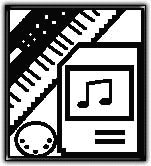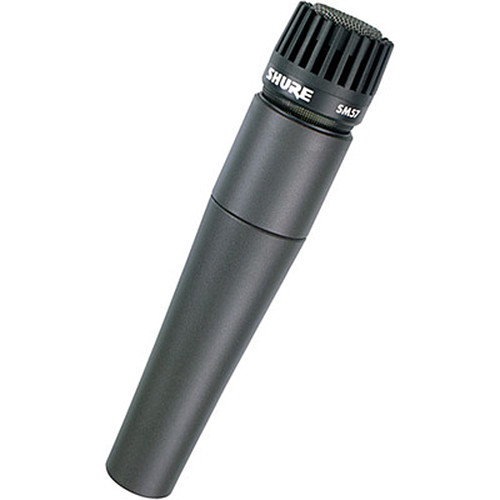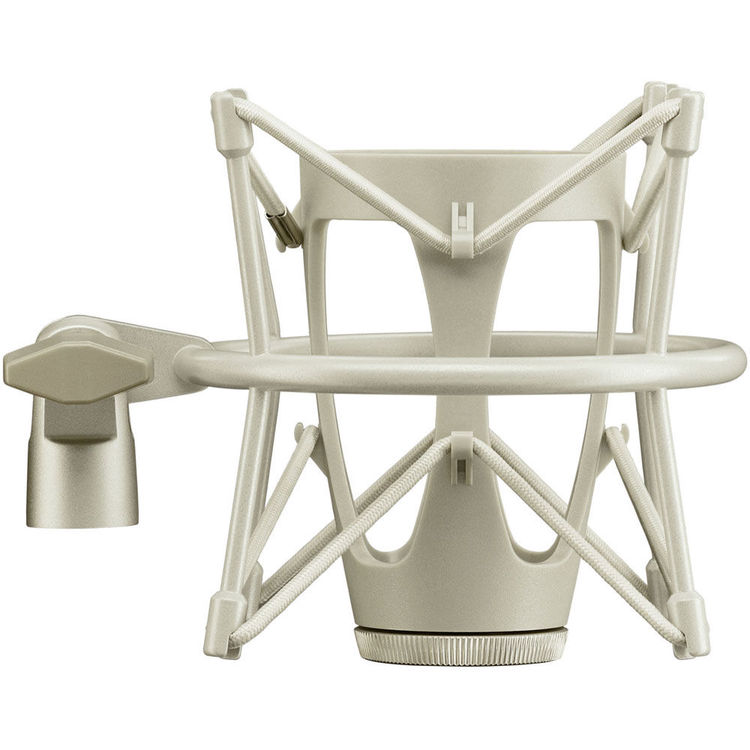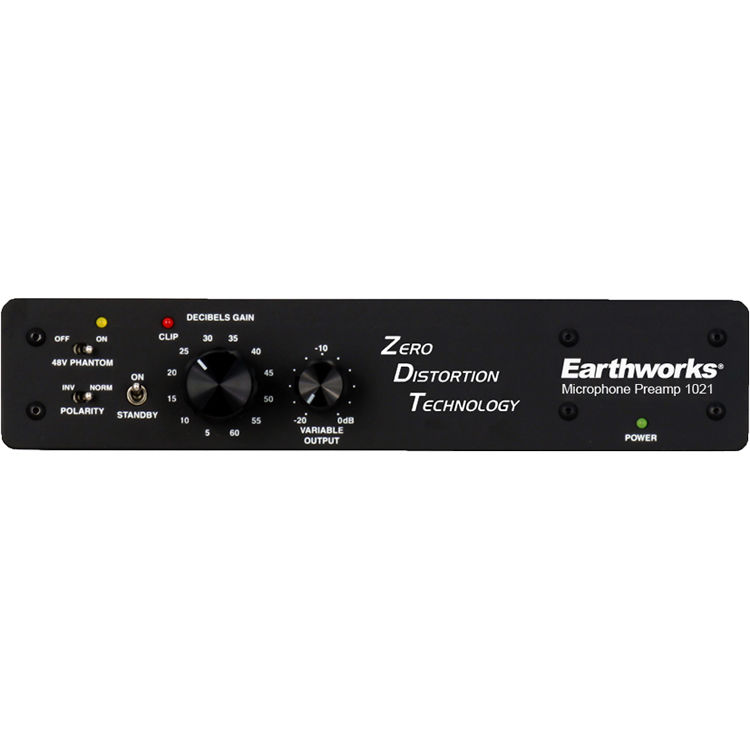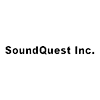SounfQuest MIDIQuest 12
We no longer can sell this program but you can still get it by going to
https://squest.com/index.html
We've left this info up so if you using hardware and want to edit, you can!
Multi Instrument MIDI Editor/Librarian with plug-ins for Macintosh and Windows
Stand-alone and Plug-in versions for AU, AAX, VST3, VST2, MFX, and Studio Connections
Over 830 MIDI instruments and devices supported, 32/64-bit support
Enhanced Editor/Librarian Features
| Basics |
Midi
Quest
one |
MQ Essentials |
Midi
Quest |
Midi
Quest
Pro |
Info |
| MacOS 64 bit: 10.15, 10.14, 10.13, 10.12, 10.11, 10.10, 10.9, 10.8 |
 |
 |
 |
 |
|
| Windows 32/64-bit OS Support: Win10, Win 8.1, Win8, Win 7 |
 |
 |
 |
 |
|
| MIDI interface: any MIDI interface with current OS drivers the properly supports SysEx transmission |
 |
 |
 |
 |
|
| Macintosh hardware requirements: Intel Macintosh with 100MB hard drive space |
 |
 |
 |
 |
|
| Windows hardware requirements: any PC capable of running Win 10, Win 8.1, Win 8, or Win 7 with 100MB HD space |
 |
 |
 |
 |
|
| Download new and enhanced instrument modules from within Midi Quest |
 |
 |
 |
 |
|
| Open Midi Quest data files from all older Midi Quest and UniQuest Windows, Mac, DOS, Amiga and Atari versions |
 |
 |
 |
 |
|
| |
|
|
|
|
|
| Price |
$69US |
$159US |
$279US |
$399US |
|
We no longer can sell this program but you can still get it by going to
https://squest.com/index.html
We've left this info up so if you using hardware and want to edit, you can!
Congratulations! You're using hardware. You know something that many musicians have forgotten. Whatever the reason, hardware synths and effects simply sound better and are more reliable than plug-ins.
However, the heart of your studio is still the computer. That's where you do all of your recording, mixing, fixing, and playback and its where you spend a lot of your time. The computer also has important assets such as raw processing power, a large monitor or two, and huge amount of disk storage space. And most importantly, the computer can help you get more from your MIDI hardware.
Ask yourself...
Did you ever wish there was an easy way to get all of your instrument's patch names into your sequencer so that an accurate list was always displayed, even if the sounds stored in your instrument changed on a daily basis?
When was the last time you created a custom bank of sounds using just your instrument (without wanting to perform a Pete Townsend on it)?
Have you ever wished you could rearrange the sounds on your synth to match your organizational style but found the synth wasn't up to it. Or, you just didn't want to have to manually keep track of all of the links between Performances, Combis, Multis and their associated Programs, Patches, and Sounds.
Have you stopped tweaking patches because you don't have anywhere to store them even if you do create something that you like?
Have you stopped tweaking patches because you spend more time flipping through pages on the synthesizer than you do actually working on the sound parameters.
Do you wish you could create some new variations of your favorite synth sounds but you don't have time to figure out what each one of those 1500 different parameters does or just where they're found on the instrument.
Are you tempting fate by not backing up your custom sounds. Almost every week there's a posting somewhere on the internet saying "I did something incredibly stupid and I just lost all of my patches".
Would you like to have a library of 5,000, 10,000, or 20,000 sounds for your instrument and actually be able to find the sounds you need, when you need them?
The Answer...
The solution is Midi Quest. Not only does Midi Quest provide you with one of the best ways to work with your MIDI hardware, it also gives you everything you need to get the most out of your MIDI hardware investment.
Midi Quest does this by providing a set of fully integrated tools that not only display, edit, and organize the settings of your instrument. They also maintain the relationships between the various types of data in your instrument.
If you want to create a new bank of sounds, its easy, just drag and drop the patches from one bank to another. Now, you want to create a new bank of Performances (also called Combis or Multis depending on the instrument). For Midi Quest, that's also easy. Midi Quest will copy over the selected Performances along with all of the sounds that those performances need to work correctly. Try doing that in other software or on your instrument.
If you want new sounds for your instrument but don't have time to learn every detail of synth programming, Midi Quest has easy click and go tools that will give you great new sounds without requiring that you understand every nuance of your instrument's audio engine.
With Midi Quest you can also be as detailed as you want to, with a control to tweak virtually every parameter in your instrument. Since Midi Quest uses the entire computer screen, you won't spend your life flipping through submenus and with the computer's virtually unlimited storage space you are free to make as many variations on a particular sound as you want. While Midi Quest's organizational tools will allow you to find the sounds you're looking for tomorrow or in a year from now.
Midi Quest supports over 650 synthesizers, drum machines, effects, and other MIDI devices so there is a good chance that we already support most, if not all, of your hardware. You can find a list of supported instruments here and click here to submit a request for instruments that don't currently have a Midi Quest module. Of course, with Midi Quest XL, you can always make your own editor, if you want.
A Little History....
Midi Quest was first released in 1989 for DOS, the AMIGA, and ATARI ST platforms and is the oldest actively supported software dedicated to getting the most from your MIDI hardware. And, Midi Quest was based on a previous 5 years experience creating software to support specific instruments such as the DX7, DX7II, D-50, M1, K1, and many others. And before that? Well, before that there was no MIDI.
During the last 20 years, Sound Quest has stayed at the leading edge. We invented the concept of using audio plug-in formats such as VST to virtualize hardware synthesizers. Sound Quest was the first company to provide software that automatically adds patch names to script files such as Sonar's MASTER.INS and Cubase's instrument patch scripts. Finally, even 10 years after its innovation, Midi Quest is still the only software which offers maintenance of parent/child relationships between Performances and Patches in a hierarchical synthesizer - a truly critical requirement for making your instrument easy to use.
Midi Quest XL continues to lead the way with the first Windows 64-bit hardware virtualizer and editor/librarian software along with the only x64 plug-in software available for your instruments. When you go x64, Midi Quest is ready. Watch for more innovations from Sound Quest in the future...
Midi Quest 10 XL
How does Midi Quest 10 compare with every previous upgrade? Quite simply, there is no comparison. Almost three years in the making, Sound Quest has never before packed so many enhancements and new features into a single upgrade.
Along with the hundreds of "small" improvements, Midi Quest 10 and Midi Quest 10 XL add major enhancements such as: multi-threaded MIDI I/O, which can cut SysX download times from 50 - 75% or more; Studio Connections plug-in support for all 650 instruments; brand new VST and MFX plug-ins - yes, that's new - and we even enhanced the old ones too; video tutorials are back, 12 hours worth; and finally, 64-bit versions of Midi Quest XL and all of its plug-ins. That's just the beginning of the list.
Midi Quest 10 XL ships with two different VST and MFX plug-ins.
The first plug-in is an enhanced version of the original. This version can load any Midi Quest data file into your host sequencer as a plug-in. What's new is the plug-in's ability to load as well as send MIDI data so you can add patches to a Library or update a Set from a plug-in stead of having to load up Midi Quest.
The updated VST and MFX plug-ins now receive CC events either from the sequencer track or external MIDI hardware and use these to remotely edit instrument parameters. The VST plug-in also includes enhanced automation features to match those available in the MFX plug-in so you can now automatically trigger SysX transmissions when the data is loaded, when the sequencer starts, when the sequencer loops, and when the sequencer stops playing.
The second VST and MFX plug-ins are completely new and appear in your list of VST or MFX lists as individual instruments. For example, if your studio contains an M1, a Motif, and a JV-1080, your VST plug-in list would list each of those three instruments separately. Choose an instrument and a custom sized Set window appears. Load data in from the instrument or read a Set file in from disk and you're ready to go.
These new plug-ins are designed to let you treat each piece of MIDI hardware as an integrated component in your sequencer, just like a soft-synth. All of the Midi Quest XL's SysX data is stored in your sequence file so when you take your sequence to another computer, the Midi Quest data automatically comes along with it.
Studio Connections - the New MIDI Hardware Plug-in Standard
Sound Quest is proud to announce that it is now providing Studio Connections compatibility for all Midi Quest 10 XL instruments. Support for the Studio Connections standard was previously limited to a small number of Yamaha devices. With Midi Quest 10 XL, Studio Connections now supports over 650 MIDI devices from 60 manufacturers.
Midi Quest 10 XL currently supports all Studio Connections on both Windows and Macintosh with features including Total Recall and access to the host sequencer's MIDI ports. In Windows, this allows Midi Quest XL to work effectively as a plug-in even if your MIDI interface has only single-client drivers.
It's a 64-bit World out there...
The x64 version of Sonar is shipping. The new 64-bit VST standard has arrived so x64 upgrades to Cubase and Nuendo can't be far behind. These new sequencers will offer great new features including smoother operation and access to much more memory but there is a catch, you need 64-bit plug-ins to run in your x64 sequencer.
With Midi Quest 10 XL, you can start using a 64-bit sequencer any time you want. Midi Quest 10 XL includes x64 compatible versions of all of its VST, Studio Connections*, and MFX plug-ins.
Midi Quest Dramatically Improves SysX transfers
How would you like to cut your SysX transfer times by 25%? 30%? 50%? 75%?
Midi Quest 10 features multi-threaded MIDI I/O. What does this mean? It means that you can send SysX data out every MIDI port of each of your MIDI interfaces simultaneously. If you need to send SysX to two or more instruments at the same time, you don't have to wait for each instrument to receive its data, just start a transmit for each instrument and you're done. And even then, you still don't have to wait. The MIDI I/O window that you're so familiar with is gone! If you've got another instrument that isn't receiving a bulk download, you can edit it, audition patches, try out a mix or blend, anything. You won't even know that you're downloading except for some blinking in the MIDI Monitor window.
Midi Quest Video Tutorials Return...
For those of you purchasing the DVD (yes, DVD) version of Midi Quest or Midi Quest XL, you will find that the disc contains over 12 hours of Midi Quest tutorials in .AVI format. You can watch these from your browser or run them from most AVI compatible players. These tutorials cover virtually all of Midi Quest's features including a number of development tutorials for those of you who always wanted to create your own instrument modules.
If you hate reading manuals but want to know everything that there is to know about Midi Quest, these are definitely for you!
Midi Quest 10 XL Features
XL Highlights
- x64 version of Midi Quest XL
- x64 versions of Midi Quest XL plug-ins (VST, MFX, Studio Connections)
- New plug-in versions of Midi Quest XL
- Instrument specific VST plug-in modules
- Instrument specific MFX plug-in modules
- Full support for the new Yamaha Studio Connections plug-in standard
Plug-in Features
- 2 different VST plug-in styles
- 2 different MFX plug-in styles
- Support for Yamaha's Studio Connections standard
- Fully independent instrument based MFX and VST plug-ins
- VST and MFX plug-in editor controls now respond to CC data recorded on sequencer tracks or real time CC data from an instrument or hardware controller in both the new VST instrument plug-in format and the original Midi Quest plug-ins
- Additional automation options including "Transmit on Load" and "Transmit on Stop"
- VST now supports "Transmit on Start" and "Transmit on Loop" automation events
- Continued support of VST automation for all controls
- New multi-threaded MIDI features result in far superior VST performance
- Midi Quest Preferences are now accessible from the plug-ins
- Complete rewrite of all plug-ins allows a single host to simultaneously run Midi Quest VST, MFX, and Studio Connections editors
- All individual instrument bitmaps required for Studio Connections
Highlights
- Make your MIDI hardware part of your computer based music studio with support for over 650 different MIDI devices (instruments, effects, drum machines, samplers, etc)
- Tired of using stock Patch Name Lists that don't represent the contents of your instrument (factory settings) or selecting your patch changes by number? Create customized Patch Name Lists for your instruments based on the patches currently in your instrument, not just the factory settings. Supports Sonar's Master.Ins file and Cubase/Nuendo Patch Script files
- Backup, organize, manage the contents of your MIDI hardware from the comfort of your large, easy to read computer screen
- Customize each of your sounds to fit perfectly in the mix. The pro's don't use stock sounds, you don't need to either
- Download and DVD versions of Midi Quest available
- DVD version includes over 12 hours of video tutorials to help you get the most from your Midi Quest purchase
- DVD version includes over 70,000 unique patches and other SysX data for your synthesizers
Patch/Parameter Editors
- Every editor is uniquely designed to match the instrument
- Open any combination of editors that you wish, including multiple editors for the same instrument
- Choose your preferred editing style...
- Easy to use grab and drag editing
- Direct numeric entry from the computer keyboard
- Mouse Wheel
- CC automation to remotely edit parameters using controls on a synthesizer or external MIDI hardware
- Extended editing popup mode for parameters with large data ranges
- Popup numeric equivalent for all graphic parameters (eg knobs, sliders) for accurate editing
- MIDI keyboard based zone and velocity editing (for performance editors)
- 25 different control types to optimally display each parameter including: drag envelopes, knobs, lists, numbers, ranges, keyboards, patch name entry, any many more
- Extensive patch auditioning options: audition after edit, pitch and velocity sensitive mouse clicks, virtual keyboard, Smart Thru for external keyboard auditioning, computer keyboard
- Randomize, Restore, or Copy & Paste any combination of parameters
- All edits are automatically sent to the instrument so the instrument stays in sync with your editor
- Unlimited Undo with auditionable Undo History for Risk Free Experimentation
- VNRPN - Virtual Non-Registered Parameter Numbers allow you to assign any controller to any parameter in an editor for remote control editing
- Instrument specific Fast Tips help for each editor
- Edit patches individually or from a bank
- Simultaneously edit as many different patches as you want
- Save edited patches to source location or any other location in another bank
- Customize and enhance editors with the Panel Editor
- Combi/Multi editors show names of selected sounds
- Customize your editors with you own unique Midi Quest "Skins"
Bank Editors
- The easiest way to organize and create custom banks
- Intuitive multiple patch drag and drop interface copies or swaps patches within the current bank or with another bank
- Real time auditioning to listen to any patch in the bank at any time
- Parent/Child relationship tracking ensures that performances continue to reference the correct sounds even during bank reorganization
- Intelligent Parent/Child copying ensures that sounds used by a performance are also copied
- Automated display of sound names used by each performance
- All sounds used by a performance are automatically tagged to reduce the risk of being accidentally overwritten
- Print a complete listing of all patches in the bank along with parent/child relationships
- Unlimited undo with undo history
- 5 different patch generation tools to create unique and usable new sounds
- Where supported, save time by uploading and downloading partial banks
- Simultaneously edit as many different banks as you want
- Automated transfer of patches into patch libraries
Sets
- Provides integration between each type of SysX data allowing you to treat an instrument as a whole
- Think of a Set as a virtual representation of your instrument's memory
- Maintains the intelligent integrated Parent/Child hierarchical editing
- Open an unlimited number of Sets from any combination of instruments
Libraries
- Store all of your instrument's patches in a single searchable location
- Each library can hold a virtually unlimited number of patches
- Open an unlimited number of Libraries
- Find all duplicates (with or without matching names)
- Automated intelligent keyword assignment
- Keyword sensitive auditioning - audition sequence is sensitive to the type of sound being played)
- Find similar sounds or patches
- Add descriptive comments to each sound
- Add identifying keywords to quickly find specific types of patches
- Sort sounds 3 ways including alphabetically
- Extensive set of editing and organizational tools
Collections
- Store patches and banks from any combination of MIDI devices together in one file
- Create and restore complete MIDI System "Snapshot"s with one click
- Extensive editing and organizational tools
Librarian
- Save & Load all types of SysX data from each instrument
- Librarian Drivers support 650+ instruments
- UniQuest supports only one instrument
- Open an unlimited number of Banks, Sets, Collections, and Libraries
- 3 types of MIDI THRU re-channelization
- Hands-off automated control of your patch bay
- Export SysX in standard MIDI file, MIDIX/Cakewalk, and Text formats
- Easy Internet - transmit MIDIX format files to your instruments
- Unique online "Fast Tips" Help simplifies MIDI communication
- Configurable file extensions & customizable storage directories for each instrument
- Desktop Load/Save - store and retrieve entire screen layouts
- Internal support for 256 individual MIDI IN and MIDI OUT ports
- "File Linking" allows many files to use the same data
Sound Checker
- Comprehensive sound auditioning tools for sound development/auditioning
- Standard MIDI File Sequencer plays Type 0 and Type 1 files
- All functions are active while playing
- Complete Graphic MIDI Systems Analysis
- Trigger custom defined notes, chords and arpeggios
Basics
- Supports Windows XP, 2000, and NT
- Save and Load instrument data to and from disk
- Supports all MIDI instrument/device data types Including patches, banks combis, multis, rhythm, system, etc.
- MIDI interface: any MIDI interface with Windows drivers
- Minimum hardware: PI with 32 MB RAM, 30MB hard drive space
- Suggested hardware: P3/Celeron with 64MB RAM, 30MB HD space
- DVD version includes over 12 house of video tutorials to help you get the most out of Midi Quest
- DVD version Includes an extensive patch collection of over 70,000 unique patches along with other SysX data
- No copy protection
- Easy to use program installer
- Dedicated Technical Support email and support line
- New and updated instrument support downloaded and installed from within Midi Quest
- Read data files from DOS, Mac, Amiga and Atari versions of Midi Quest
- Easy upgrades to Midi Quest and Midi Quest XL (from UniQuest and Midi Quest.)
Advanced Features
- The only software to offset sophisticated program automation by plugging into Infinity
- The only editor/librarian to support patch name export for all of the following applications: Cubase, Sonar, Cakewalk, Nuendo, PowerTracks, and ProTools(ProTools only)
- Includes over 70,000 patches and other SysX data (that's over 70MB of data covering most supporting instruments). Check the each individual instrument page for information on included patches. (DVD version only)
- Skins - Midi Quest patch editors include a sophisticated set of tools which allow you to create your own 'look'. You can choose from an extensive selection of skins provided by Sound Quest or create your own using your preferred colors and background bitmaps
- VNRPN - remotely edit any parameter in any editor using a MIDI keyboard or hardware controller
- Parent/Child Hierarchical Bank Editing
- Intelligent and automated assignment of descriptive keywords to each of your patches
- File Linking - be able to use the same data in different groups, databases, and libraries. Edits to one linked file are automatically transferred to all other linked files
- Gen 4 and four other types of intelligent patch mixing
- Automated search for duplicates in Libraries. Do you have thousands of sounds? Let Midi Quest find and remove all of the duplicates in your libraries - even if the names of the patches are different!
System Requirements
PC
- Windows XP, 2000, NT, and Vista
- PI with 32 MB RAM, 30MB hard drive space
- DVD Drive
Mac
- Macintosh OS10.4 Intel & PPC
- DVD Drive
